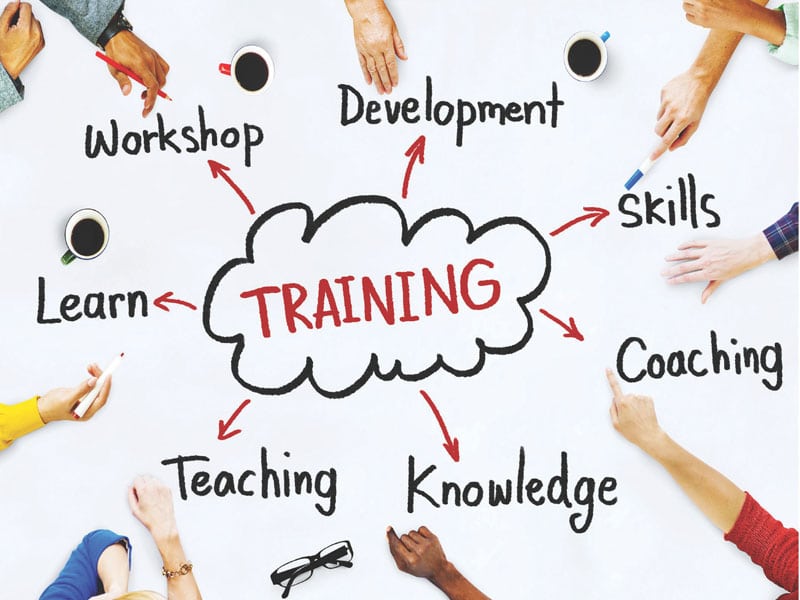
The basic idea behind the creation of Rajasthan Skill and Livelihoods Development Corporation (RSLDC) is to formulate appropriate and innovative strategies to promote and facilitate large-scale livelihoods for the underprivileged people of the State, says Ngikya Gohain, Manging Director, RSLDC in an interview with Ahmad Shariq Khan of Elets News Network (ENN).
Please give us a brief description about RSLDC’s mission and objectives.

The Mission of RSLDC is to address the needs of rising unemployment in Rajasthan through formulating and promoting appropriate livelihood strategies for the State’s economically weak working population and fulfilling Government’s larger vision of attaining inclusive economic growth. RSLDC seeks to provide an impetus to skill training and livelihoods initiatives for disadvantaged groups like women, SC, ST, migrants, persons with special ability etc. RSLDC is overcoming the challenges by disseminating knowledge, experimenting with alternative ideas, designing more effective livelihoods promotion strategies and advocating policy reforms. By facilitating convergence and coordination among stakeholders and enhancing capacities of existing livelihoods intervention agencies, RSLDC is expanding and improving accessibility of services.
How RSLDC established skill training mechanism by involving training partner agencies to execute the training programme across the State?
Over a period of time, RSLDC has consolidated its skill training framework and has standardised the skill ecosystem of Rajasthan. RSLDC also plays an important role in approval of schemes, preparation of training guidelines and selection of training partners. RSLDC also decides parameters of establishment of Skill Development Centres (SDCs), their inspection and approval, methods and reporting of sudden inspections, assessment and certification and placement norms.
These processes are now well defined and have been made consistent by the State Skill Mission to ascertain better outcome. In last five years, RSLDC has seen a phenomenal growth as a result of its skill-based endeavours that have benefitted more than 2.75 lakh youth and rising.
As part of its endeavour RSLDC offers a bouquet of courses to choose from including National Skills Qualifications Framework (NSQF) aligned courses. RSLDC has expanded its horizon by providing training in newer sectors such as Phad Paintings, Heritage Mistri Trade, Purohitya Prashikshan, Ornamental Fisheries, etc. It leads to dropping conventional courses and making space for the industry-relevant trades.
In its attempt to reach out to the different sections of the society, RSLDC is laying special emphasis on empowering special sections of the society with quality training and placement opportunities. RSLDC is providing skill training to women, transgender, persons with special ability, juveniles and jail inmates, ex-army servicemen, Pak migrants, and other such sections.
How is RSLDC working towards nurturing industry-ready skill sets among students?
RSLDC is working with over 250 training partners who have partnered with industries and potential employers for arranging post-training placements. These partnerships with training partners and industries are critical in ascertaining the industries’ skill requirements. The training partners are encouraged to submit their proposed courses when they submit their proposal for empanelment with RSLDC, considering the employability factor of a particular sector. They accordingly do mobilisation and counselling of suitable youth based on their proposed courses and ensuring the inculcation of right skill sets among candidates. The 10 convergence departments with whom RSLDC has signed Memorandum of Understanding (MoU) also do mobilisation of youth for the training programmes. Further, RSLDC also publishes industry-specific Expression of Interest (EOIs), wherein interested industries are encouraged to participate in the training programmes and provide in-house training as per candidates, needs. The provision of on-the-Job training (OJT) is also available in RSLDC courses, whereby training partners ensure youth’s participation.
The challenge of ensuring gainful and sustainable employment to Rajasthan’s youth is a major area of concern for policymakers, what measures have been taken by RSLDC in this regard?
The Deen Dayal Upadhyaya Grameen Kaushalya Yojana (DDU-GKY) scheme since its inception has the placement based incentive mechanism. After the adoption of Common Cost Notification (CNN) by RSLDC, the Employment linked Skill Training Programme (ELSTP) and Pradhan Mantri Kaushal Vikas Yojana (PMKVY) schemes also have incentive parameters to encourage better placement opportunities for the trained youth. All these trainings are provided as per the NSQF aligned courses of level 1-4.
The State Government has also established the country’s first Government Skill University (RISU) with Bachelor of Vocation (B Voc) and Diploma of Vocation (D Voc) trainings of level five and above. This will boost the skills and employability levels of the youth. Another private skill university – Bhartiya Skill Development University (BSDU) has been also established under facilitation from the State Government. The university is conducting Swiss dual model of training with major focus on hands-on experience and is conducting B Voc and D Voc courses and is also providing an opportunity for PhD programme. All these courses are designed to make a significant difference for the youth, helping them take up a better and sustainable employment in the times to come.
RSLDC has also tied up with many industry players for better training and placement. In this direction, MoUs were signed during Resurgent Rajasthan Partnership Summit – 2015 with prominent industries like Caterpillar, BOSCH, Schneider, Asian Paints, Uber, Ola, Glass Academy etc. RSLDC also helped in the establishment of BOSCH BRIDGE Academy in 33 district level Government ITIs. RSLDC has played a major role in the establishment of Centre of Excellence for Tourism Training (CETT), Udaipur in 2016 with the support of ITEES, Singapore. This Centre of Excellence is a state-of-art Institution and is mandated to focus on training youth in hospitality sector courses. The trained youth of RSLDC are also being linked with suitable apprenticeship to augment their skills and create better job opportunities for them.
How is RSLDC making education accessible to remote areas of Rajasthan?
RSLDC is putting special focus on tribal areas, border districts and aspirational districts of Rajasthan. Looking into the skill training requirements of tribal areas, RSLDC has prepared a sub-scheme under its Regular Skill Training Programme (RSTP). Relaxation is given in certain terms and conditions to enable training partners in scaling up training in these areas and benefitting youth.
Similarly, for Pak Migrants, located majorly in the border districts of Jodhpur, Barmer and Jaisalmer, special circular has been issued under RSTP scheme and training partners have been directed to take up the training programmes for their livelihood enhancement.
The remote areas lack availability of suitable infrastructure to conduct skill development trainings. To take up this matter, the TAD department is creating infrastructure and would hand over these buildings to RSLDC for training programmes. RSLDC is also planning to establish ‘Mega Skill Malls’. These malls will accommodate at least 4-5 sector specific courses and will also have residential facilities and would train youth in large numbers. The sectors would be demanddriven with high employability courses. RSLDC is also planning to resume the mobile van-based skill training programmes to fetch the needs of far-off and remote areas.
How can a platform be created to integrate academicians, students, researchers and administrators?
The State Government already has a policymaking body, which is Rajasthan Mission on Livelihoods (RMOL) being chaired by the Chief Minister of Rajasthan Vasundhara Raje. Additional Chief Secretaries, Public Relations Secretaries and Secretaries of major departments are the member of RMOL. It also has representation from industry bodies and sector-specific national level experts.
There is another platform – Chief Minister Advisory Council headed by the Chief Minister of Rajasthan. There are three sub-groups under it and one of them is education sub-group. This sub-group works under the leadership of Education Minister of Rajasthan and has the representation of policymakers, education experts, and international NGOs working in the field of education and skill development and other representatives. Thus, I believe the existing framework in the regard is already doing an excellent job and is rightly directed.






















